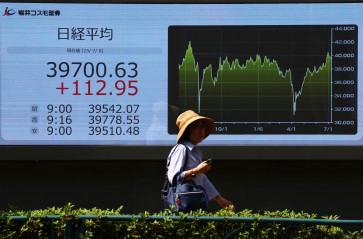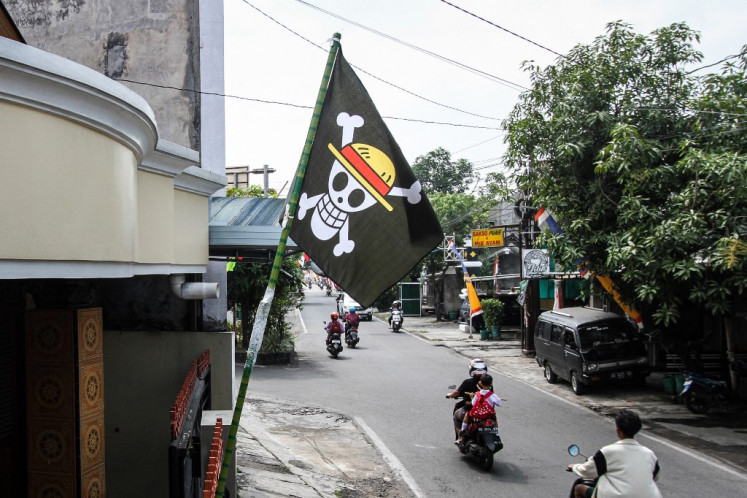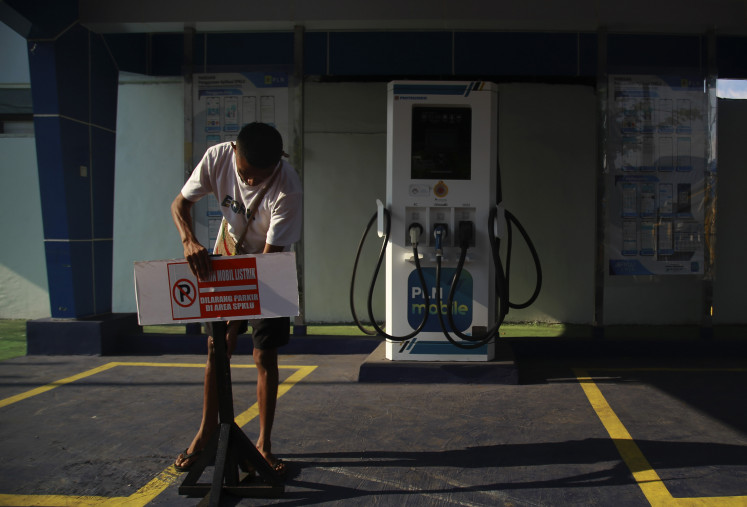Popular Reads
Top Results
Can't find what you're looking for?
View all search resultsPopular Reads
Top Results
Can't find what you're looking for?
View all search resultsPoverty rate remains high despite solid growth
Poverty remains a problem in Indonesia despite the country’s solid economic performance as indicated by the upgrade of its sovereign rating to investment grade by Fitch Rating
Change text size
Gift Premium Articles
to Anyone
P
overty remains a problem in Indonesia despite the country’s solid economic performance as indicated by the upgrade of its sovereign rating to investment grade by Fitch Rating.
A Central Statistics Agency (BPS) report revealed on Thursday that behind the country’s apparent strong economic performance, negative social issues, such as poverty and starvation, still loomed large among its 230 million-plus population.
The report shows that the government has managed to reduce poverty by only 1.8 percent to 13.3 percent, from 15.1 percent between 1993 and 2010.
The BPS predicted in its report that this year’s poverty rate would stand at 12.49 percent.
The government aimed to reduce poverty to at least 7.5 percent in 2015, less than four years from now, as part of its efforts to fulfill the Millennium Development Goals (MDGs), BPS people’s welfare statistics director Happy Hardjo said.
MDGs are eight development goals, agreed upon by 189 countries in 2000, which comprise 21 targets that have to be reached by the end of 2015. The government set out its framework to reach the MDG targets in its 2010-2014 National Medium-Term Development Goals (RPJMN).
While the goal to meet the targeted poverty reduction still seemed remote, Happy said the government was on course to reach its target to reduce the rate of starvation.
“Indonesia aims to cut the starvation rate by 50 percent in 2015, from the 31 percent in 1989, the baseline year used for this indicator,” Happy said.” Since 2010, we have managed to cut the starvation rate to 17.9 percent and it seems we are going to be able to reach our target of 15.5 percent,” he added.
With such figures, even if Indonesia could manage to meet its poverty goal in 2015, there would still be at least 8 percent of its people facing starvation even if they were not considered to be “poor”.
Indonesia’s subpar performance in handling welfare issues is transcribed in the recent human development index report by the United Nations Development Program (UNDP).
“By looking at the UNDP’s publication, Indonesia still has a very low human development index compared to its counterparts in Southeast Asia in 2011,” BPS’ analysis and statistics development director, Kecuk Suhariyanto, said.
The UNDP data shows that Indonesia heads the bottom four countries in ASEAN, (with Vietnam, Cambodia and Myanmar) with a 2011 development index figure of 0.617. The best index in the ASEAN region belongs to Singapore, on 0.866. Myanmar recorded the lowest index, with 0.483.










